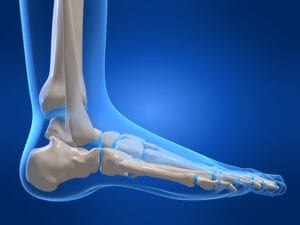Elderly Care can Help with Plantar Fasciitis
Plantar fasciitis can be excruciating for older adults unlucky enough to experience it – and plenty do. Plantar fasciitis is one of the most common causes of heel pain. It feels like a deep, stabbing pain at the front part of the heel.
What Causes Plantar Fasciitis?

Elderly Care Glenview, IL: Plantar Fasciitis
Plantar fasciitis is caused by inflammation in a band of tissue (called the plantar fascia) that runs across the bottom of the foot, from the heel bone to the toes. The plantar fascia supports the arch of the foot and absorbs shock from walking. Plantar fasciitis is often worse first thing in the morning when getting out of bed. As you move about the fascia relaxes a little and the intensity of the pain tends to decrease – although it’s prone to worsening again after standing on hard surfaces, or sitting for longer periods.
The cause for plantar fasciitis is not always clear, although it appears to get worse, in some cases, with running, aerobic dancing, or other activities that may stretch or tear this tissue. Being overweight, having an abnormal walking pattern, flat feet or a high arch can contribute to the risk of plantar fasciitis. Wearing footwear with poor support over time, especially high heels or shoes that cramp the toes, is also problematic.
The biggest risk factor for heel pain and plantar fasciitis, however, is advanced age. As podiatrist Michael A. Sherwin says, “Aging baby boomers’ feet are like cars. The more miles you have on them, the more things can go wrong or wear out.” In fact, 1 in 4 older adults experience heel or foot pain. Many of these seniors state that their foot pain is debilitating and prevents them from leaving their home.
It’s important to take care of pain from plantar fasciitis, because it can become chronic if not treated. This chronic pain can interfere with mobility and a senior’s daily activities.
What can be Done About Plantar Fasciitis?
Talk to the doctor about any foot pain, especially if it is starting to limit your activity level. There are various treatments available, including special stretches, injections and surgery, in extreme cases. It’s important to see the doctor to diagnose foot pain correctly. For example, a stress fracture could be the culprit, rather than plantar fasciitis. Stretches or home treatments that could help one condition could actually make a different condition worse.
One very important thing seniors can do to prevent or reduce pain from plantar fasciitis is to wear properly fitting, supportive footwear. Orthotic inserts may be helpful, but it’s worth visiting an orthopedic foot store to be sure you’re finding the right shoe for your foot. The right footwear can reduce pain, improve balance, and enable a senior to continue enjoying an active, satisfying lifestyle.
Reach out for Help – Elder Care is There
If a senior in your life is having trouble getting around because of foot pain, elder care services can help get them back on their feet, so to speak. Elder care aides can be scheduled for short periods or on an ongoing basis, depending on the need. They can assist with shopping, errands and transportation. They can also assist with mobility, fall safety, personal care, housework and cooking. Finally, elder care aides can help seniors stay active, either by walking with them, helping them get where they want to go, or helping them complete prescribed exercises.
If you or an aging loved one are considering Elderly Care in Glenview, IL, contact the caring staff at Companion Services of America today at (847) 943-3786. Our home care service area includes Northbrook, Highland Park, Deerfield, Glenview, Buffalo Grove, Evanston, Des Plaines, Skokie, Lake Forest, Wilmette and the surrounding areas.
Sources
https://www.mayoclinic.org/diseases-conditions/plantar-fasciitis/symptoms-causes/syc-20354846
https://www.health.harvard.edu/newsletter_article/easing_the_pain_of_plantar_fasciitis
- Supporting Senior Healing After Surgery - July 23, 2024
- Know the Warning Signs of UTIs - July 17, 2024
- How Senior Home Care from an Agency Helps Improve Safety for Aging Men and Women - July 10, 2024
